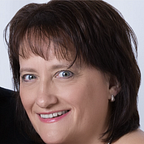Covid pandemic must signal change in education, led by technology — EDUCATE roundtable
The pace of change in technology use and remote learning as a result of the Covid school lockdown must signal the start of major education reforms, a roundtable of educationalists and experts heard.
The event, hosted by EDUCATE Ventures and entitled Shock to the System: Lessons from Covid-19 Roundtable, was chaired by Lord Jim Knight and organised as a precursor to the launch next month of a major report on remote learning and technology use.
EDUCATE researchers, led by Dr Carmel Kent, head of data science, spent nine months from the start of the first school lockdown in March 2020 gathering data and information on the experiences of schools, families, students and EdTech developers, using questionnaires, surveys, interviews and analysing the messaging and attitudes on social media. The research was carried out in conjunction with Cambridge University Press, which will publish the research.
Professor Rose Luckin, EDUCATE’s director, told the roundtable remote learning had built up a momentum that had led to many parents opting not to send their children back to school, and to home educate instead.
However, there remained a “terrible inertia” in the formal education system that considered physical attendance in school at evidence of progress and central control as a mechanism that needed to be present to make the system work.
“Things have to change, and families deserve better,” Professor Luckin told the panellists and 120 webinar participants. “As one contributor to our research said: ‘in a week we have managed to do the sort of training that would have normally taken six months’.
“People coped despite the enormous amount of information that came from the government, which was often conflicting. We now have to help educators and families to build on the energy they put into making it work, and to make it better. We have to use every tool we have to persuade policymakers that change has to happen. Because change is happening.”
Bob Harrison, visiting professor of education at the University of Wolverhampton, who has promoted technology use in the further education sector for many years, said there was a lack of vision in government, which had spent the past ten years “dismantling the structures for technology, only to now have to say how wonderful it is”.
“The inspiration comes from the teachers and educational technologists working together in spite of, and not because, of the system”, he said. “The potential of technology has not been realised.”
Jane Mann, director of education reform at Cambridge University Press, told participants that there was a growing realisation globally that educational assessment also had to change. However, there was still a need for assessment to involve “some elements of pens and paper”.
“There is a strong desire for change, but the pace at which we are moving means that everything seems to be reactive,” she said. “It needs to be a well-considered, evidence-based move because you cannot just change assessment without changing everything that goes with it.”
Nick Kind, educational specialist with Tyton and Partners, said there was a risk that people would think of technology as “that terrible thing we did in lockdown, which was dysfunctional and we hated it, and can we go back to where we were before”. He said that the story needed to be told about how technology could make a difference and why it was important to embrace it.
The roundtable also heard contributions from Caroline Wright, Director General, BESA; Sir Anthony Seldon, former Vice Chancellor, University of Buckingham; Lord David Puttnam, Chair, Atticus Education; Lord Tim Clement-Jones, Spokesperson for Digital, Lib Dems; Fran Morgan, Founder, Square Peg’ Tom Moule, Executive Lead, IEAIED.
A recording of the roundtable discussion can be found here.
